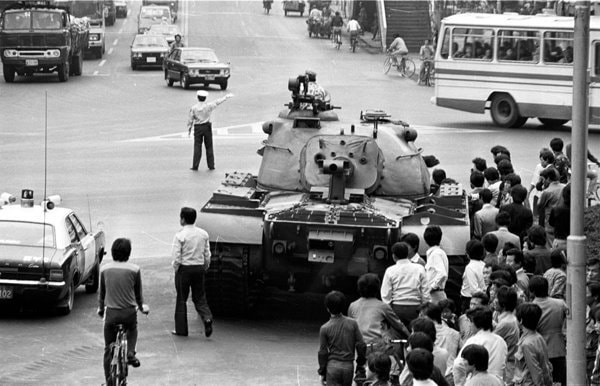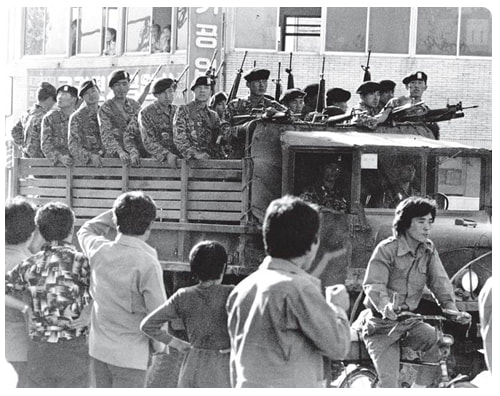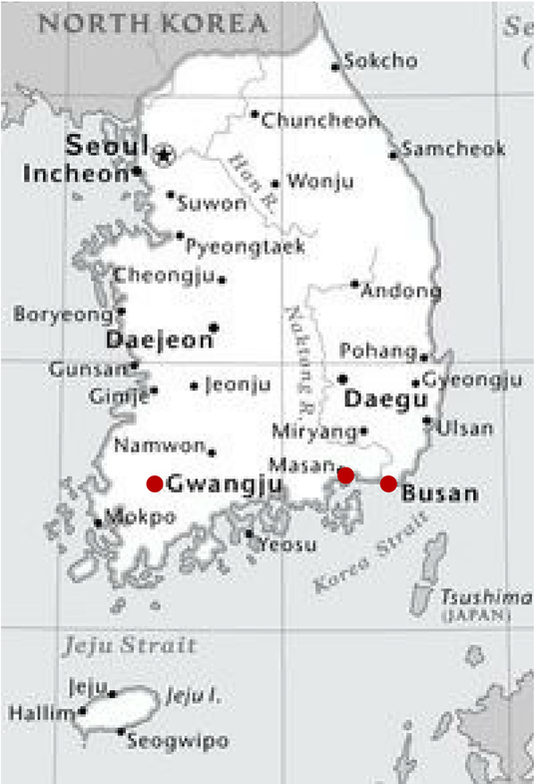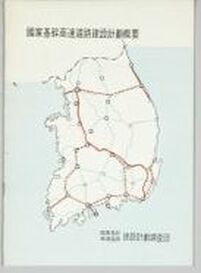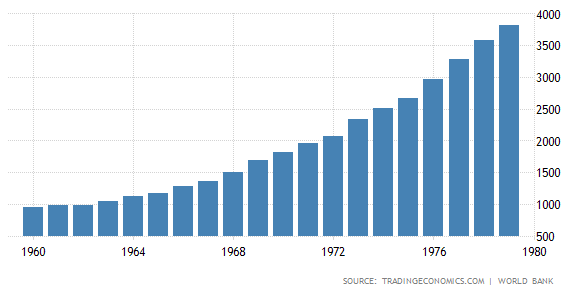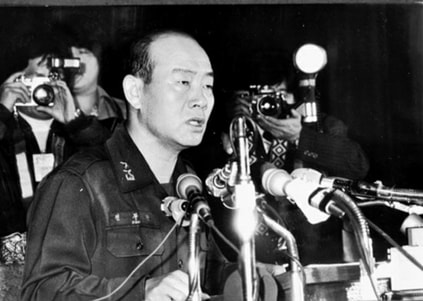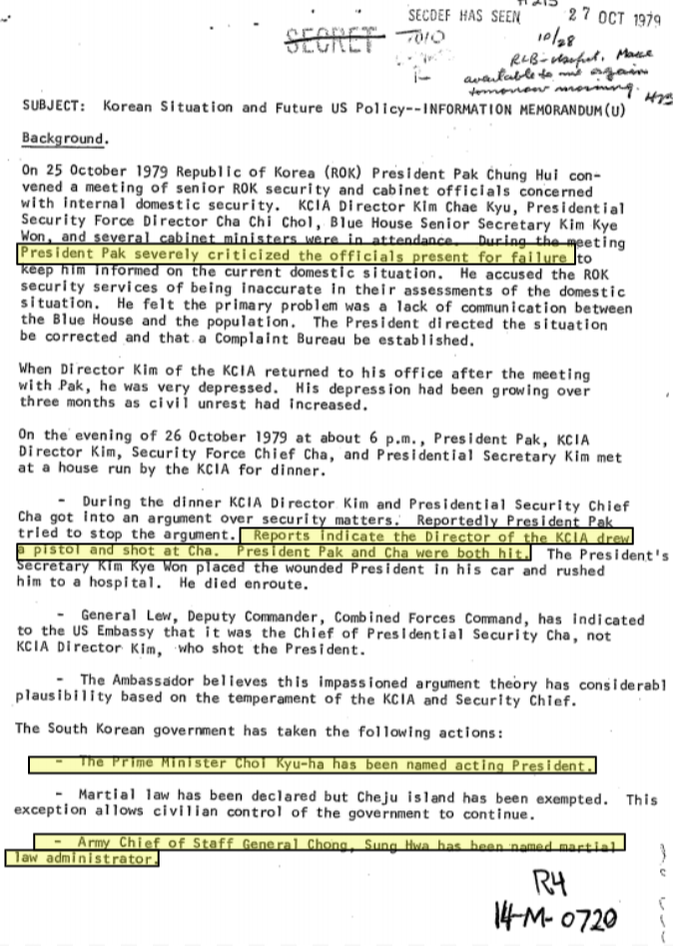President Park Chung-hee sworn in for his eighth presidential inauguration, Dec. 27, 1972, ChosunIlbo.
The Yushin Order: 1972-1979
Interests for liberalization expressed by South Korean citizens conflicted with the authoritative stance of the president. These clashes tragically led to political suppression.
On Oct. 17, 1972, Park Chung-hee, the president of South Korea promulgates the Yushin Constitution, a manipulated constitution ensuring him direct control over the National Assembly and a lifetime presidency by creating the National Conference for Unification (NCU) to elect the president.
"Under the Yushin Constitution, Mr. Park had the right to appoint one‐third of the 231‐member National Assembly, he held direct control of the all‐powerful Korean Central Intelligence Agency and granted himself emergency powers to arrest opponents." |
"The system [electoral system} guarantees the triumph of a government-favored candidate because the delegates to the electoral college [NCU] are elected from a slate of candidates screened by the government and are not bound to vote in selecting the president according to the preference of the citizens." |
Under the Yushin Constitution, Park Chung-hee expelled anti-Yushin activist Kim Young-sam from the National Assembly. On Oct. 18-19, 1979, in Kim Young-sam’s hometown, Busan and Masan, students protested. Park's presidency intervened with the democratization that South Koreans fought for during the April Revolution, overthrowing the previous president Syngman Rhee.
|
(Hover over images to see captions)
The protests were unsuccessful as students were unable to conjure enough opposition to overthrow Park Chung-hee. Troops were dispatched to quell protesters.
“Anyone who looked like a student was arrested and beaten, so we all went home.” |
Important geographical areas on the map of Korea, National Geographic.
|
Park Chung-hee's presidency prioritized economic growth over liberalization. While his regime was oppressive, the nation was dependant on the growth and stability that was a result of his presidency. South Korea's Gross Domestic Product surged in 1961 when he came into presidency.
Park Chung-hee's Assassination
Oct. 26, 1979, Park Chung-hee was assassinated by Kim Jae Gyu, South Korea's CIA Director. The assassination was triggered by Park Chung-hee's criticism of Kim Jae Gyu's inaction to protests in Busan and Masan.
"If we’re too harsh in suppressing the demonstrators in Busan and Masan, there will be a huge backlash from the people down there. But the ruling Republican Party isn’t giving President Park the right advice... I am going to get rid of him today." General Chun Doo-hwan was placed in charge of the investigation of Park's assassination. Daily Mail.
|
South Korea's situation report, Oct. 26. National Security Archive.
|
Park Chung-hee 's assassination sparked hope in Koreans that an era of democracy would emerge.
"Do you know about the Seoul Spring? The Seoul Spring was after Park Chung Hee’s death. People across the country were thirsty for democracy. In those days it felt as if the buildings were bursting."
-Yoon Jung Lee, President of the May Women's Association.
Leslie Kim
The Gwangju Uprising: Triumphs from Tragedy
Junior Category - Individual Website
Student Composed Words: 1,199
Process Paper Words: 499
Multimedia: 3:58
The Gwangju Uprising: Triumphs from Tragedy
Junior Category - Individual Website
Student Composed Words: 1,199
Process Paper Words: 499
Multimedia: 3:58
Proudly powered by Weebly

